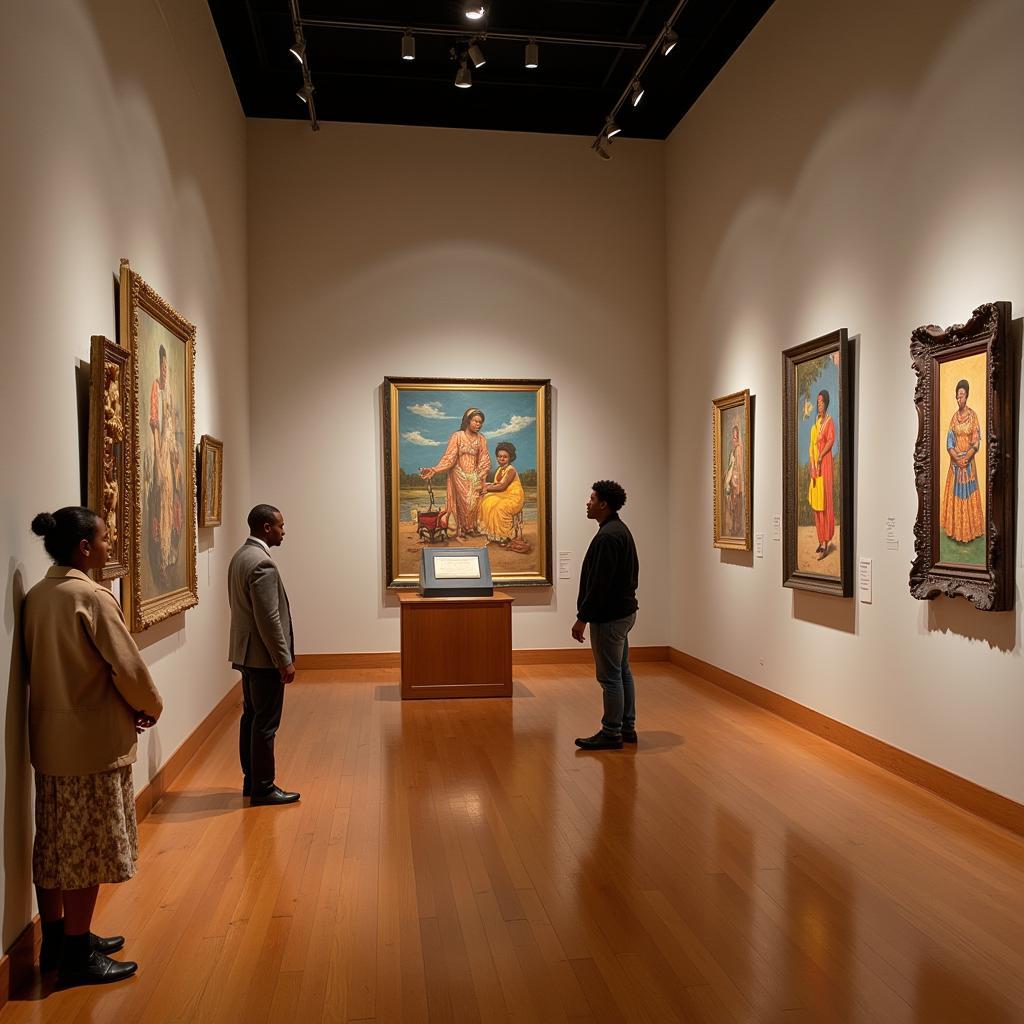Uncovering History: A Guide to African American Primary Sources
African American Primary Sources offer invaluable insights into the rich, complex, and often untold stories of African Americans throughout history. These sources provide a direct link to the past, allowing us to hear the voices, experiences, and perspectives of those who lived through pivotal moments. Whether you’re a student, researcher, or simply curious about history, understanding and utilizing these sources is crucial for a comprehensive understanding of the African American experience.
From personal letters and diaries to official documents and photographs, African American primary sources come in various forms. These firsthand accounts offer a unique lens through which we can examine historical events, social movements, and cultural shifts. They provide a deeper, more nuanced understanding than secondary sources, which often interpret or analyze primary materials. Learning how to locate, evaluate, and interpret these sources is an essential skill for anyone seeking to engage with African American history. For instance, exploring the experiences of African American soldiers during the Civil War can shed light on their motivations, challenges, and contributions to the Union victory. You can find more about this topic by reading African American soldiers in the civil war primary sources.
Where to Find African American Primary Sources
Locating these valuable resources can sometimes feel daunting. Fortunately, numerous archives, libraries, and online databases are dedicated to preserving and making accessible African American primary sources.
- National Archives and Records Administration (NARA): NARA holds a vast collection of federal government documents related to African American history, including records related to slavery, the Civil War, and the Civil Rights Movement.
- Library of Congress: The Library of Congress boasts extensive manuscript collections, photographs, oral histories, and other primary source materials documenting African American life and culture.
- The Schomburg Center for Research in Black Culture: Part of the New York Public Library system, the Schomburg Center is a world-renowned research library dedicated to the study of the African diaspora.
- Digital Collections: Many institutions have digitized their holdings, making them readily available online. Examples include the Digital Library on American Slavery and the Freedmen’s Bureau Records.
- University Archives: Many universities maintain archives that house primary source materials related to local and regional African American history.
Different Types of African American Primary Sources and Their Value
African American primary sources encompass a diverse range of materials, each offering unique insights.
- Personal Narratives: Autobiographies, memoirs, diaries, and letters reveal the intimate thoughts, feelings, and experiences of individuals.
- Official Documents: Government records, legal documents, and court transcripts provide valuable information about legal and political contexts.
- Photographs and Visual Materials: Photographs, posters, and artwork offer a visual record of historical events and cultural expressions.
- Oral Histories: Recorded interviews capture the lived experiences and memories of individuals, preserving valuable firsthand accounts.
- Newspapers and Periodicals: African American newspapers and magazines provide contemporary perspectives on historical events and social issues.
Analyzing and Interpreting African American Primary Sources
Analyzing primary sources requires careful consideration of context, bias, and perspective.
- Consider the historical context: Understanding the time period in which the source was created is essential for accurate interpretation.
- Identify the author’s perspective: Who created the source and what was their motivation? Considering the author’s background, beliefs, and experiences helps to understand potential biases.
- Corroborate with other sources: Comparing and contrasting multiple primary sources and secondary sources strengthens historical analysis.
If you’re interested in delving deeper into African history and need personalized guidance, you might consider exploring resources like African history tutoring. This can be an invaluable resource for understanding the broader context surrounding African American primary sources.
Utilizing African American Primary Sources in Research and Education
African American primary sources are essential tools for research and education. They enable students and researchers to:
- Develop critical thinking skills: Analyzing primary sources encourages critical thinking about historical evidence.
- Construct historical narratives: Primary sources provide the building blocks for constructing accurate and nuanced historical narratives.
- Gain a deeper understanding of the African American experience: By engaging with primary sources, individuals can develop a more profound appreciation for the complexities of African American history and culture.
- Connect with the past: Primary sources create a tangible link to the past, allowing individuals to connect with the lives and experiences of those who came before them. For instance, understanding the geographical distribution of African populations can offer insights into cultural diversity and historical developments. You can learn more about this by looking at resources about African countries in the southern hemisphere.
Conclusion: Empowering Understanding Through African American Primary Sources
African American primary sources are a treasure trove of historical information, offering invaluable insights into the diverse experiences and perspectives of African Americans throughout history. By utilizing these resources, we can deepen our understanding of the past, engage with different perspectives, and construct more accurate and nuanced historical narratives. Engaging with African American primary sources is not just about learning history; it’s about connecting with the lived experiences of individuals and communities, fostering empathy, and promoting a more complete understanding of our shared human heritage. While researching these primary sources, you may come across medical terms or conditions related to African populations, such as African jaw lymphoma. Remember to approach these topics with sensitivity and respect.
FAQ
- What is the difference between a primary and secondary source?
- Where can I find digitized African American primary sources?
- How can I evaluate the credibility of a primary source?
- What are some examples of African American primary sources related to the Civil Rights Movement?
- How can I incorporate primary sources into my research paper?
- What are some common challenges in interpreting primary sources?
- What are some ethical considerations when working with African American primary sources?
I hope this guide has provided you with valuable information about African American primary sources. For any further assistance, please do not hesitate to contact us.
Call us at: +255768904061
Email us at: kaka.mag@gmail.com
Visit us at: Mbarali DC Mawindi, Kangaga, Tanzania.
We have a 24/7 customer support team.



